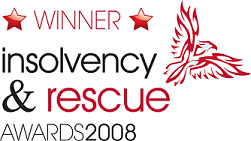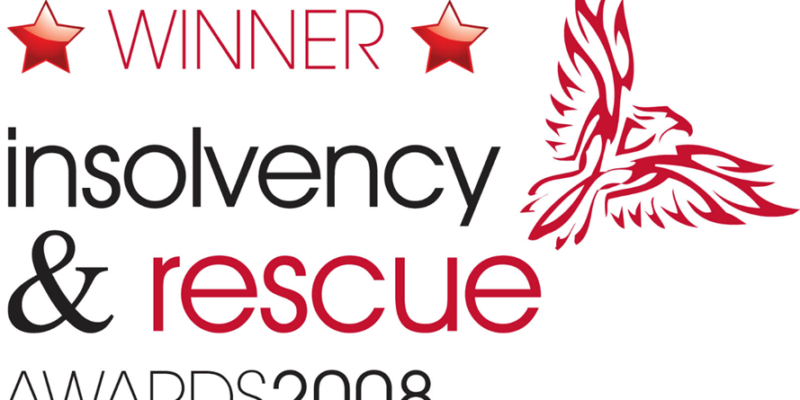- RT @MoneyMatters: Frugal teen buys house with 4-H winnings http://bit.ly/amVvkV #
- RT @MoneyNing: What You Need to Know About CSAs Before Joining: Getting the freshest produce available … http://bit.ly/dezbxu #
- RT @freefrombroke: Latest Money Hackers Carnival! http://bit.ly/davj5w #
- Geez. Kid just screamed like she'd been burned. She saw a woodtick. #
- "I can't sit on the couch. Ticks will come!" #
- RT @chrisguillebeau: U.S. Constitution: 4,543 words. Facebook's privacy policy: 5,830: http://nyti.ms/aphEW9 #
- RT @punchdebt: Why is it “okay” to be broke, but taboo to be rich? http://bit.ly/csJJaR #
- RT @ericabiz: New on erica.biz: How to Reach Executives at Large Corporations: Skip crappy "tech support"…read this: http://www.erica.biz/ #
Consumer Action Handbook
- Image by ivers via Flickr
The Consumer Action Handbook is a book published by the federal government for the express purpose of giving you “the most current information on all your consumer needs.” In short, the Consumer Action Handbook wants to help you with everything that takes your money.
The best part? It’s free.
The book covers topics ranging from banking to health care to cell phones to estate planning. It covers both covering your butt in a transaction and filing a complaint if things go poorly. It explains the options and pitfalls involved in buying, renting, leasing, or fixing a car. You can learn about financial aid for college and maneuvering through an employment agency. And more. So much more.
I’m not sure if you’ve noticed, but I spend quite a bit of time explaining scams and how to avoid them. This book has provided some of the source material for that theme.
It’s 170 pages on not getting screwed, either through fraud or ignorance. Every house should have one. Really, the list of consumer and regulatory agencies alone is worth the price of admission, which–if I wasn’t clear earlier–is $0.
To get yours, go to http://www.consumeraction.gov/caw_orderhandbook.shtml and fill out the form. You can order up to 10 at a time, so pick a few up for your friends and family. They won’t complain, I promise.
Anchor Price Your Salary
- Image by Dalboz17 via Flickr
Conventional wisdom says that, when negotiating your salary or a raise, you should make whatever crazy ninja maneuvers it takes to get the other person to name a number first.
Horse pellets.
Have you ever watched an infomercial? Those masters of of impulse marketing geared towards insomniacs, invalids, and inebriates?
“How much would you pay for this fabulous meat tenderizer/eyelash waxer? $399? $299? No! If you call within the next 73 seconds, we will let you take this home for the low, low price of just $99.99!”
That’s the magic of anchor pricing.
The first number you hear is the number you will base all further numbers on. If you hear a high number, other lower numbers will feel much lower by comparison. The number doesn’t even have to be about money.
There was a study done that had the subjects compare a price to the last two digits of their social security numbers. Those with higher digits found higher prices to be acceptable, while those with lower prices only accepted cheaper prices.
What does an infomercial marketing ploy have to do with your salary?
If you are negotiating your salary and your potential employer gives a lowball offer, every higher counteroffer after that will much, much higher than than it would otherwise. On the other hand, if you start with your “perfect” salary, they amount you will be happy to settle for won’t seem to be nearly as high to the employer. At the same time, you will be less likely to accept a lowball offer if you set your anchor price high.
For example, if you are looking to make $50,000:
The employer offers you $40,000. $60,000 seems too high by comparison, so you counter with $50,000, then compromise and settler for $45,000. Or, you could start at $60,000, making the employer feel that $40,000 is too low, so he counters with $45,000, leaving a compromise at $52,000. That’s a hypothetical $7,000 boost, just for bucking conventional wisdom and taking a cue from the marketing industry.
How have you negotiated your salary?
You’re not alone: Help with Bankruptcy & Debt
 Frequently regarded as an indication of personal failure, bankruptcy is still today widely considered a highly sensitive topic. Many will even feel uneasy speaking about their debt problems with close relatives and friends. If you, too, are facing serious debt issues and are in need of help, rest assured you are not the only one afraid of sliding into bankruptcy. In fact, thousands of households in the UK are threateningly close to insolvency and most are experiencing the exact same feelings of shame and despair. This perfectly understandable reaction has, meanwhile, unfortunately overshadowed the fact that there are hands-on practical steps especially designed to help you resolve your debt situation.
Frequently regarded as an indication of personal failure, bankruptcy is still today widely considered a highly sensitive topic. Many will even feel uneasy speaking about their debt problems with close relatives and friends. If you, too, are facing serious debt issues and are in need of help, rest assured you are not the only one afraid of sliding into bankruptcy. In fact, thousands of households in the UK are threateningly close to insolvency and most are experiencing the exact same feelings of shame and despair. This perfectly understandable reaction has, meanwhile, unfortunately overshadowed the fact that there are hands-on practical steps especially designed to help you resolve your debt situation.
There is a good reason why addressing the issue of bankruptcy has an urgent ring to it. Recent statistics indicate a steady rise of individual company insolvencies in the UK, particularly since the 1990s. According to the British Insolvency Service, the rate of bankruptcy on an individual level has risen from a total of 24,441 in 1997 to staggering 106,645 in 2007 in England and Wales. Alarmingly, the peak doesn’t seem to have been reached yet. As respected online-service ‘This is Money’ reports, ‘record numbers of people were declared insolvent in England and Wales’ in 2010, further noting that ‘an all-time high of 135,089 people were declared insolvent in 2010—0.7% up on the total for 2009.’ As you can gather from these numbers, you are certainly not alone with your debt problems: Around 140,000 adults are facing bankruptcy as a direct consequence of mishandling their debt issues, which translates to 385 new cases per day. It has already been pointed out that ‘the number of victims will be enough to fill both the London 2012 Olympic stadium and the Emirates Stadium.’
So, if you’re facing bankruptcy, there’s no need to feel ashamed. By taking an active stance and addressing your debt issues, you may even be able to avert insolvency altogether. With years of experience and several distinctions to our credit, the Debt Advisory Line have established themselves as leading experts in the field of debt management. We’ve already helped thousands of individuals and households who thought bankruptcy was their only option. Settling debt issues is our forte – and you shouldn’t settle with anything less.
This post brought to you by Debt Advisory Line.
How to Prioritize Your Spending
Don’t buy that.
At least take a few moments to decide if it’s really worth buying.
Too often, people go on auto-pilot and buy whatever catches their attention for a few moments. The end-caps at the store? Oh, boy, that’s impossible to resist. Everybody needs a 1000 pack of ShamWow’s, right? Who could live without a extra pair of kevlar boxer shorts?
Before you put the new tchotke in your cart, ask yourself some questions to see if it’s worth getting.
1. Is it a need or a want? Is this something you could live without? Some things are necessary. Soap, shampoo, and food are essentials. You have to buy those. Other things, like movies, most of the clothes people buy, or electronic gadgets are almost always optional. If you don’t need it, it may be a good idea to leave it in the store.
2. Does it serve a purpose? I bought a vase once that I thought was pretty and could hold candy or something, but it’s done nothing but collect dust in the meantime. It’s purpose is nothing more than hiding part of a flat surface. Useless.
3. Will you actually use it? A few years ago, my wife an cleaned out her mother’s house. She’s a hoarder. We found at least 50 shopping bags full of clothes with the tags still attached. I know, you’re thinking that you’d never do that, because you’re not a hoarder, but people do it all the time. Have you ever bought a book that you haven’t gotten around to reading, or a movie that went on the shelf, still wrapped in plastic? Do you own a treadmill that’s only being used to hang clothes, or a home liposuction machine that is not being used to make soap?
3. Is it a fad? Beanie babies, iPads, BetaMax, and bike helmets. All garbage that takes the world by storm for a few years then fades, leaving the distributors rich and the customers embarrassed.
4. Is it something you’re considering just to keep up with the Joneses? If you’re only buying it to compete with your neighbors, don’t buy it. You don’t need a Lexus, a Rolex, or that replacement kidney. Just put it back on the shelf and go home with your money. Chances are, your neighbors are only buying stuff so they can compete with you. It’s a vicious cycle. Break it.
5. Do you really, really want it? Sometimes, no matter how worthless something might be, whether it’s a fad, or a dust-collecting knick-knack, or an outfit you’ll never wear, you just want it more than you want your next breath of air. That’s ok. A bit disturbing, but ok. If you are meeting all of your other needs, it’s fine to indulge yourself on occasion.
How do you prioritize spending if you’re thinking about buying something questionable?
What do you do?
You’re not your job. You’re not how much money you have in the bank. You’re not the car you drive. You’re not the contents of your wallet. You’re not your ******* khakis. -Tyler Durden
“What do you do?”
They typical answer is usually something like “I’m a computer programmer.” Or a DJ, a cop, a barista, a stripper, or whatever.
The answer is always given in the context of work. Is work the center of your life? Is your career the most important thing you have? For many, it is. Our jobs become a fully integrated piece of our identities. Even when we pay lip-service to putting our families first, all too often, we spend more of our waking hours working than actually living.
We spend 40, 50, 60 hours each week at our jobs. It’s natural for that to become a part of us.
We go too far.
I am not my job. I am not my career.
I am a father, a husband, a writer, a blogger, and more. I have hopes, dreams, and ambitions entirely apart from my career.
I hope you do, too.
The next time someone asks you what you do, try responding with your passion.
“I’m a parent.”
“I grow freaking awesome roses.”
“I travel whenever I can.”
“I obsess over politics.”
Leave the tradition work-centric script behind. You’re going to confuse the people who are expecting it. They think they are asking about your job and you are responding with something that truly matters to you.
What do you do?





